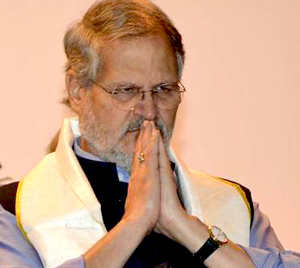May 29: A total of 367 domestic flights, carrying 30,136 passengers, operated throughout the country till 5 pm on Thursday, Civil Aviation Minister Hardeep Singh Puri said.
Airports in West Bengal also started operations on Thursday, three days after domestic air travel resumed in India after a gap of two months.
All scheduled domestic passenger services were suspended in India from March 25 to May 24 due to restrictions in the wake of the coronavirus pandemic.
Earlier in the day, Puri had said that 460 domestic flights carrying 34,336 passengers were operated on Wednesday.
In the case of West Bengal, the minister on Sunday had said that the state will handle domestic flights from Thursday.
"Figures for domestic flights for 28th May 2020 are in. Departures 367, 30,136 passengers handled. Arrivals 310, 25,530 passengers handled. Total movements 677 with 55,666 passenger footfalls at airports.
“Total number of flyers 30,136. These are numbers till 1700 hrs for Day 4," Puri said in a tweet.
A total of 428 domestic flights carrying 30,550 passengers and 445 domestic services carrying 62,641 flyers were operated in the country on Monday and Tuesday, respectively.
In February this year, when the lockdown was not imposed, around 4.12 lakh passengers travelled daily through domestic flights in India, according to Directorate General of Civil Aviation (DGCA) data.
During the pre-lockdown period, Indian airports handled around 3,000 daily domestic flights, aviation industry sources said. A total of 16 asymptomatic passengers on seven different flights including 13 of them who travelled by IndiGo have tested positive for COVID-19 since the resumption of domestic air services on Monday, according to airlines data.
Two of the three asymptomatic passengers who tested positive for the infection had travelled by Spicejet while one took a flight of Air India subsidiary Alliance Air.
The Karnataka government, meanwhile, said on Thursday it has requested the civil aviation ministry to reduce the number of flights originating from five states--Maharashtra, Gujarat, Tamil Nadu, Madhya Pradesh and Rajasthan--in the light of the high number of COVID-19 cases there, hours after a minister said it has "suspended" air travel from these states.
Seeking to clarify his statement, Law and Parliamentary Affairs Minister J C Madhuswamy maintained that Karnataka has not sought imposing a ban on flights from the five states as reported in some sections of the media. "India is flying high. Domestic operation figures for May 27, 2020 (till 23.59 hrs): Departures 460 with 34,336 passengers handled. Arrivals 464 with 33,525 passengers handled," Puri had said earlier in the day on Twitter.
If a flight takes off before midnight and lands in another airport after midnight, its departure and arrival are counted on different days, leading to a seeming mismatch in the figures of a particular day.
The Delhi airport, India's busiest airport, is scheduled to handle 147 departures and 145 arrivals on Thursday, said senior government officials. The Mumbai airport's operator MIAL said it handled a total of 50 domestic flights on Thursday. International passenger flights continue to remain suspended in the country.
Airports in West Bengal, Andhra Pradesh, Maharashtra, Telangana and Tamil Nadu have been allowed to handle a restricted number of daily flights as these states do not want a huge influx of flyers amid the rising number of COVID-19 cases.
While domestic services resumed in Andhra Pradesh on Tuesday, they restarted in West Bengal on Thursday.
Though domestic flight operations across the country began on May 25, they could not be restarted in Kolkata and Bagdogra as the state's machinery was involved in relief and restoration work after cyclone Amphan's devastation.
"Welcome Back, Passengers! Kolkata Airport saw the arrival of 122 passengers from @DelhiAirport after two long months and 40 passengers departed to Guwahati. Proper checks were followed, and regular sanitization was carried out in the terminal which was abuzz with passengers," the Kolkata airport tweeted.
On Thursday, eleven flights took off from Kolkata and an equal number arrived in the city, sources at the Netaji Subhas Chandra Bose International Airport said.
"A total of 1,745 passengers arrived and 1,214 passengers flew out of the city today (Thursday)," airport sources said.
The airports in Kolkata and Bagdogra are permitted to handle 20 daily flights each from Thursday onwards.
While it is not clear how many flights were handled by the Bagdogra airport on Thursday, the officials said 899 passengers arrived while 484 passengers departed from the airport during the day.
The West Bengal government recently came up with a set of guidelines for people arriving in the state on domestic flights.
According to it, those entering the state from Thursday must submit a self-declaration form, stating that they have not tested positive for COVID-19 in the past two months.
The passengers will also need to undergo health screening after they arrive at the airport, the state's guidelines said.
 Lt. Governor Najeeb Jung is likely to send a report to the President recommending dissolution of the Assembly, ending the eight-month-long political uncertainty. The Assembly has been in suspended animation ever since President’s Rule was imposed in mid-February.
Lt. Governor Najeeb Jung is likely to send a report to the President recommending dissolution of the Assembly, ending the eight-month-long political uncertainty. The Assembly has been in suspended animation ever since President’s Rule was imposed in mid-February.




Comments
Add new comment